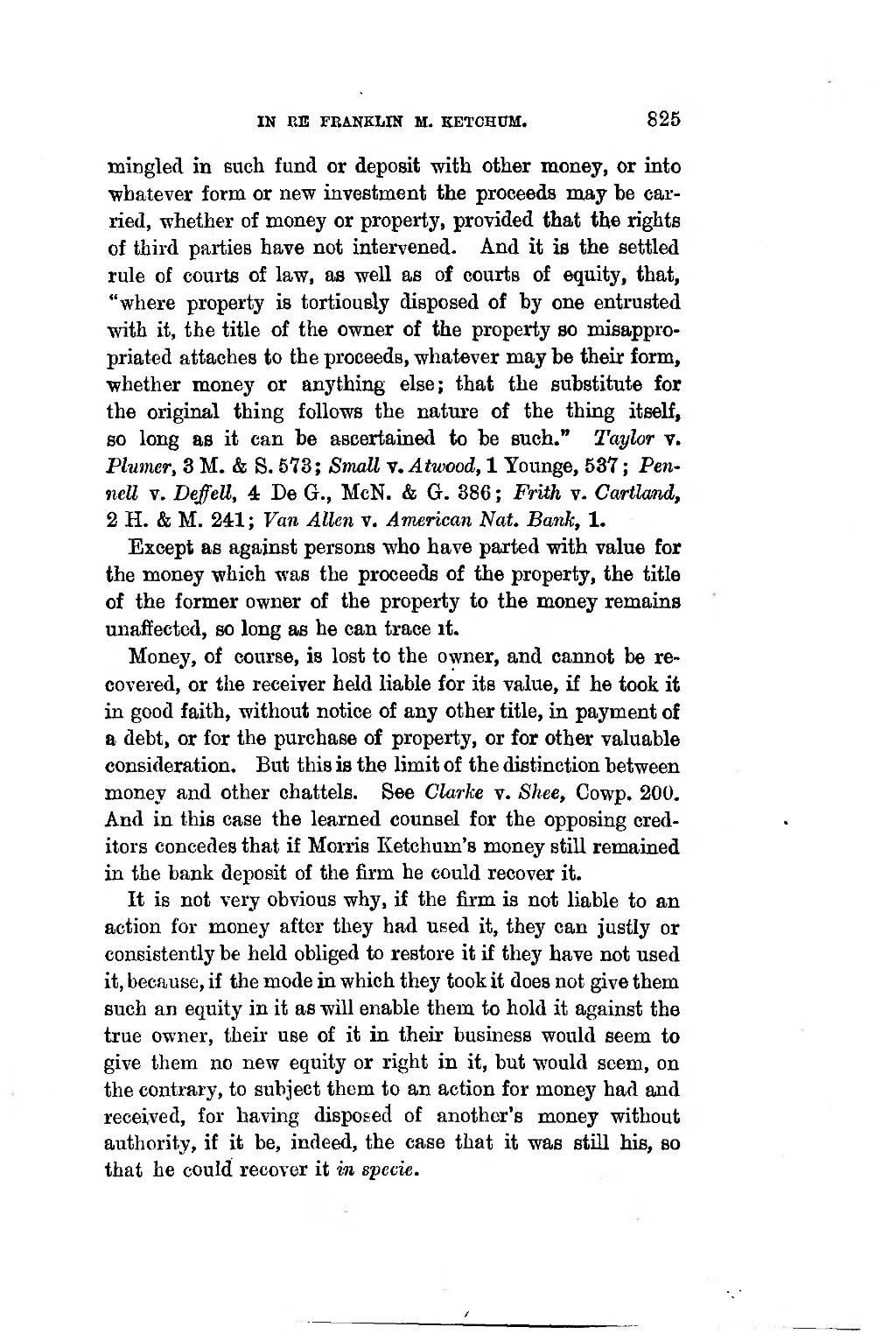IN KŒ FEANKIiIN M. KETCH0M. 825 �mingled in such fund or deposit with other money, or into ■wbatever form or new investment the proceeda may be car- ried, -whether of money or property, provided that the rights of third parties bave not intervened. And it is the settled rule of courts of law, as well as of courts of equity, tbat, "where property is tortiously disposed of by one entrusted with it, the title of the owner of the property se misappro- priated attaches to the proceeds, whatever may be their form, whether money or anything else; that the substitute for the original thing follows the nature of the thing itself, 80 long as it can be ascertained to be such." Taylor v. Plumer, 3 M. & S. 573; Small v. Atwood, 1 Younge, 537 ; Pen- nell V. Defell, 4 De G., McN. & G. 386 ; Frith y. Gartland, 2 H. & M. 2el; Van Allen v. American Nat. Bank, 1. �Except as against persons who have parted with value for the money which was the proceeds of the property, the title of the former owner of the property to the money remaina unaiïected, so long as he can trace it. �Money, of course, is lost to the owner, and cannot be re- covered, or the receiver held liable for its value, if he took it in good faith, without notice of any other title, in payment of a debt, or for the purchase of property, or for other valuable consideration. But this is the limit of the distinction between money and other chattels. See Clarke v. Shee, Cowp. 200. And in this case the learned counsel for the opposing cred- itors concedes that if Morris Ketchum's money still remained in the bank deposit of the fi.rm he could recover it. �It is not very obvious why, if the firm is not liable to an action for money after they had used it, they can j'ustly or consistently be held obliged to restore it if they bave not used it, because, if the mode in which they took it does not give them such an equity in it as will enable them to hold it against the true owner, their use of it in their business would seem to give them no new equity or right in it, but would seem, on the contrary, to subject them to an action for money had and reeeived, for having disposed of another's money without authority, if it be, indeed, the case that it was still his, so that he could recover it in specie. ��� �
Page:Federal Reporter, 1st Series, Volume 1.djvu/833
This page needs to be proofread.
